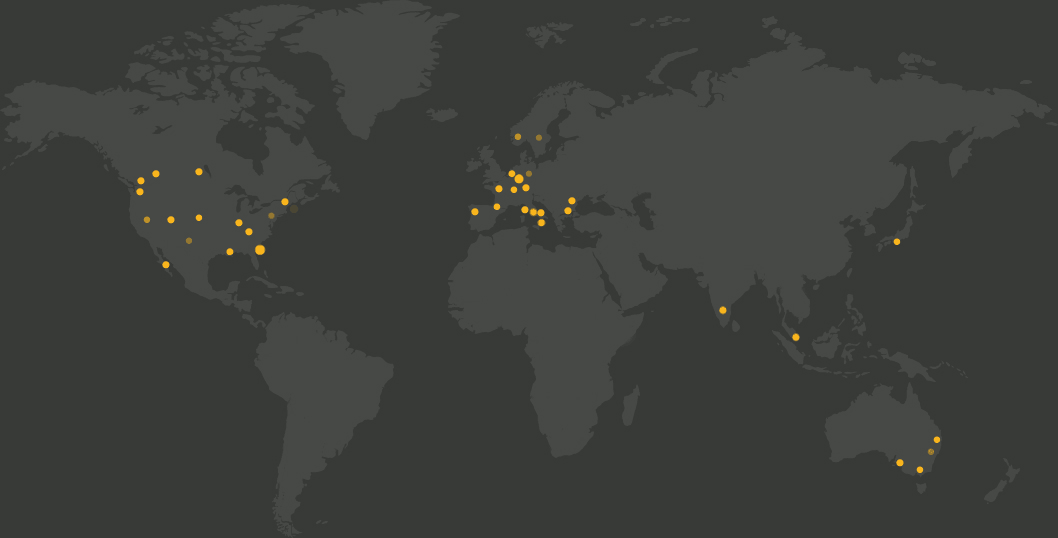Content management error: Header Banners should not be placed in the Navigation placeholder!
The ABCs of Data Analytics
Modis Posted 28 July 2022Content management error: Generic Content Banners should not be placed in the Navigation placeholder!
One effect of the growth of digital transformation processes among businesses has been a greater reliance on data analytics. This means a greater need for people who possess the relevant skills – and not just in tech companies. Organisations in all sectors are undergoing digital transformations, so opportunities can be found right across the economy, from predictive revenue modelling in the finance sector to enrolment trends in education and everything in between.
But we’re getting ahead of ourselves. Let’s take a moment to examine what data analytics is.
What is data analytics?
Put simply, data analytics is the use of data and related tools to guide and make business decisions. It’s a broad term that covers all the steps you’d take to discover, interpret, describe, and visualise the patterns hidden in raw data. The core aim is to make it easier for the rest of the organisation to access, understand, and act on the stories the data tells.
Successful data analytics will lead to better business strategies. The organisation will be able to better predict actions and events, identify trends, make decisions, and spot opportunities, all of which will feed into data-driven strategies. As data analytics draws on activities and data sources of all types and sizes, a systematic approach is essential.
The term data analysis is often used interchangeably with data analytics, but they’re not the same. Data analysis is best understood as a subset of data analytics, which involves cleaning, modelling, and questioning data to gain insights, and is usually limited to a single dataset at a time. A true data analytics practice will include data analysts alongside data engineers and data scientists.
Organisations practise data analytics because they know the resulting insights can give them an edge. Retailers, for example, can gain hard facts about customer engagement and demand, which can feed into everything from sales and marketing processes to stockkeeping. Technology providers and other companies can spot patterns in data on cyberattacks, allowing them to better predict and mitigate against threats. And meteorological institutes can identify triggers for wildfires, storms, and other events, and use that to help keep people safe. These are just a few of the possible use cases – pretty much any organisation in any sector can benefit from data analytics.
What skills do I need?
The breadth of data analytics means you should have a solid idea of which step of the process you want to work in. The exact make-up of a data analytics pipeline will vary between organisations, but a typical one will start with data collection and ingestion before the data is categorised into structured and unstructured forms. This stage will often determine the next step, but usually the data will then be managed in databases, data stores, or data lakes (or some combination of these) before being stored in hot, warm, or cold data storage. Next comes the extract, transform, load (ETL) process, before the data can be analysed for insights, patterns, and trends. And only then is the data ready to be presented to business users (or in some cases, consumers) via dashboards and other data-visualisation methods.
Although the precise skills you need will vary depending on the stage of the pipeline you’re working on, it should be clear by now that you’ll be handling data at every step. So, alongside an understanding of databases, a background in mathematics and statistics is a strong plus point for any candidate applying for roles in data analytics. Coding skills are similarly helpful across the entire data analytics pipeline.
The more mundane parts of the data analytics pipeline are increasingly being automated via artificial intelligence and machine learning (AI/ML). While this will mean fewer entry-level positions becoming available, these processes still require human intervention – ideally from someone who is not only data-literate, but also has a good grounding in AI/ML.
An understanding of data analysis, modelling, and visualisation will also be useful, whichever specific data analytics role you’re applying for – this is a field in which it helps to understand what’s happening on the rest of the pipeline.
Cloud skills and certifications are valuable to employers in the data analytics space. As data volumes continue to increase, cloud storage and frameworks like Hadoop have become integral parts of data analytics practises. So, you’ll need to be cloud-literate in a general sense and capable of extracting data from cloud systems more specifically.
Lastly, don’t forget the soft skills. These are often overlooked in this field, but for certain roles they’re as vital as the hard skills. Telling stories from data means being an effective communicator, while managing a team that covers the whole analytics pipeline will require leadership skills to bring together data scientists, analysts, engineers, and others so that workplace silos don’t emerge.
What next?
Whether you’re a candidate seeking a data analytics role or an employer needing to staff a data analytics practice, we’d be happy to talk with you to help identify and address your needs. Our deep industry knowledge and experience means we’re ideally placed to help you take the next steps, so don’t hesitate to get in touch. And if this post has piqued your interest in the field, check out the Modis Tech Academy to begin developing the skills you need.
Content management error: Generic Content Banners should not be placed in the Navigation placeholder!
Connect with Modis
